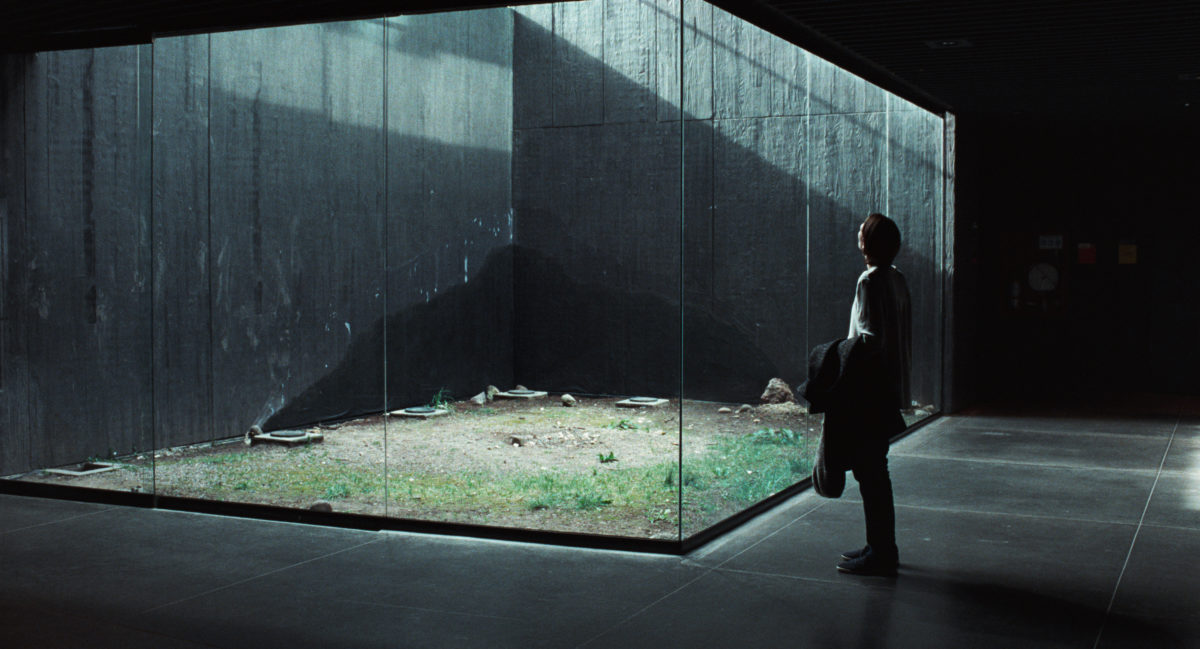“In here, time stops”, says a nametag-wearing saleswoman, who leads Jessica (Tilda Swinton) towards a high-powered fridge, designed to keep flowers from aging. It’s a funny declaration to hear in Memoria, Thai director Apichatpong Weerasethakul’s English- and Spanish-language debut, a movie intent on documenting motion and transformation. Most shots are static, but they work to highlight the flickers of slowly-dying fluorescent lights or, as the camera turns to lush Colombian jungles, the minute twitchings of insects. Each moment lives—creatures arise from the stillness, people move with sudden poetic grace. The movie structures itself around the anticipatory suspense of these irregular intrusions, most of all the explosive banging noises—always louder than expected—that haunt Jessica’s mind.
In keeping with its director’s first use of an A-list star, Memoria invokes Hollywood’s archetypical postcolonial fable, I Walked with a Zombie: Jessica is a white orchid farmer gone south to nurse her ailing sister, but her professional and personal missions fade as she discovers her own calling in the strange land—compelled by her internal explosions, “like a rumble from the core of the earth”, as she describes them. As with Frances Dee in Tourneur’s movie, we interpret the movie by Jessica’s gait, the camera panning to catch her on the foreign sidewalks of Bogotá. Dee walks the island to understand its propulsive drumbeat and finds its slave history; Jessica visits doctors, anthropologists, and archaeologists (including a scene-stealing Jeanne Balibar) with a wide-eyed amateur’s attempt to understand her own drum-like condition, and by extension her surroundings. Apichatpong twists his usual lighting patterns to match the perspective shift. The bleached-out interiors of Blissfully Yours (2002) or Uncle Boonmee Who Can Recall His Past Lives (2010) are here highlighted by warmer, comforting browns, while the brooding jungle of Tropical Malady (2004) is now bright to the point of fantasy—we often gaze at Swinton in a field of grass, outlined by a heavenly glow.
As a thoughtfully-constructed suspense movie, Memoria begins by teaching the audience how to anticipate its shocks. In the first shot we hear the thunderous bang; within minutes we are in a recording studio, synthesizing a replica sound. Hernán (Juan Pablo Urrego), a young audio engineer, plays a litany of stock sounds, digitally tweaking them to meet Jessica’s recollection. Apichatpong frames the process with the diligence such work requires: the camera faces Hernán’s computer screen head-on as he manipulates waveforms with virtuosic ease on a computer keyboard. The scene drags on to near-comical length, but in doing so, we learn to listen for particular qualities of the banging sound, on guard to take mental notes of its bass level and reverb the next time it recurs. The film’s apparent slowness twists into edge-of-your-seat compulsion towards the next bang, an auditory Michael Myers threatening an appearance behind any sound we hear.
The latter part of the movie finds Jessica in an encounter with another Hernán (Elkin Díaz), modeled after Borges’s ‘Funes el memorioso’: cursed with the gift of infinite memory, he can recall the history of even the rocks strewn by his seat. Unlike Borges’s jaded figure, Hernán comforts Jessica with tender, laconic phrases. Their conversation extends the arhythmic suspense established earlier, languorous pauses punctured by curt intrusions of sound. Meanwhile, the image stays alive through the arcs of bugs flying and gusts of wind blowing the trees. Apichatpong mashes the bursts supplied by the artificial impositions of scripted dialogue and careful sound editing with the filmed-on-set dynamism of the jungle: one senses in these scenes the same divine precarity as in Ingrid Bergman’s voiceover plea to God, filmed atop an active volcano, during the finale of Stromboli.
As with all elements of Memoria, the embrace of artificiality is taken to extremes. Hernán and Jessica embrace; he lets her into his memories. He shows her—and us—a vision from his memory, a spaceship taking off with a familiar propulsive explosion, all rendered in CGI. The artificial bangs from the soundtrack join with the lived action of the images; the moment is profound—not for its implications about extraterrestrial life, but for its vision of connection between disparate individuals, the ground beneath them, and history behind them. The sudden relationship between Jessica and Hernán, at once familial and sexual, forces a look back at each person we’ve seen Swinton share space with—Balibar, doctors, nameless extras on the street—and ask if they, too, enjoyed a latent bond with each other, a charge flowing like a circuit through them. Apichatpong’s camera seems to suggest it, always eager to capture small brushes between Swinton and the other actors. Hernán’s come-on to Jessica seems to confirm it: “I’m like a hard disk.” Plug in and listen.
